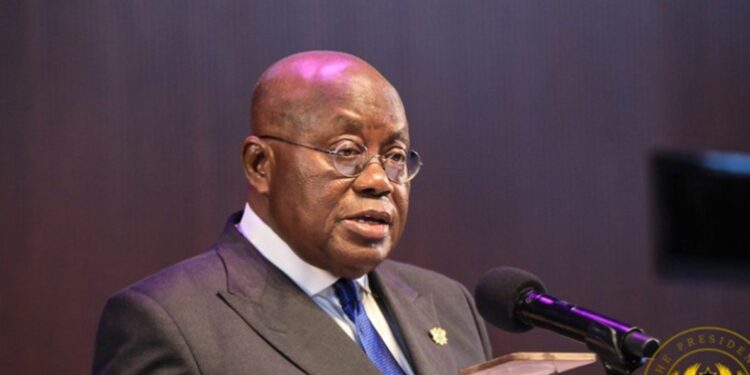President Nana Addo Dankwa Akufo-Addo has praised the strides made in Ghana’s economic recovery following the restructuring of $13 billion in Eurobond debt, positioning it as a turning point for the country’s financial stability. Despite the president’s optimism, the celebration of this achievement comes at a time when many Ghanaians continue to endure severe hardships, with rising food prices, an unstable power supply, and widespread environmental challenges such as water pollution.
Speaking after the debt restructuring, which was finalized in September 2024 after months of negotiations with international bondholders, President Akufo-Addo lauded the country’s return to international financial markets. He emphasized that this development marks a new phase for Ghana’s economy, helping to stabilize its finances and creating space for economic growth. “Our economy has turned a corner,” the president declared, highlighting the importance of the debt restructuring in placing Ghana on a sustainable debt path and restoring confidence among investors.
However, while the government celebrates this financial milestone, many Ghanaians continue to feel the pinch of an economy that, for them, has yet to fully recover. Rising food prices have stretched household budgets, leaving many struggling to meet daily needs. Coupled with frequent power outages and water pollution linked to illegal mining (galamsey), citizens are grappling with a difficult reality that contrasts with the optimistic picture painted by the government.
The restructuring, endorsed by the International Monetary Fund (IMF), reduced Ghana’s debt stock by $4.7 billion and provided $4.4 billion in cash flow relief over the next two years. These financial gains, according to the government, have restored investor confidence, leading to a 6.9% GDP growth in the second quarter of 2024, the highest in five years.
Finance Minister Mohammed Amin Adam echoed the president’s positive outlook, stressing that the restructuring is key to restoring debt sustainability and improving Ghana’s macro-financial outlook. While inflation has shown signs of easing and growth projections are looking more favorable, these improvements have yet to translate into a noticeable reduction in the daily struggles faced by the average Ghanaian.
President Akufo-Addo acknowledged the difficulties many citizens continue to face, but he expressed hope that the long-term benefits of the debt restructuring and ongoing economic reforms would eventually trickle down to alleviate the hardships. “We are laying the foundation for sustained growth and prosperity,” he stated, assuring that the government remains committed to reforms that will create jobs and improve living standards.
As the government continues to push for recovery, Ghanaians are hopeful that the economic gains celebrated at the national level will soon translate into tangible improvements in their daily lives, addressing the harsh realities of rising costs and unstable services that persist across the country.

